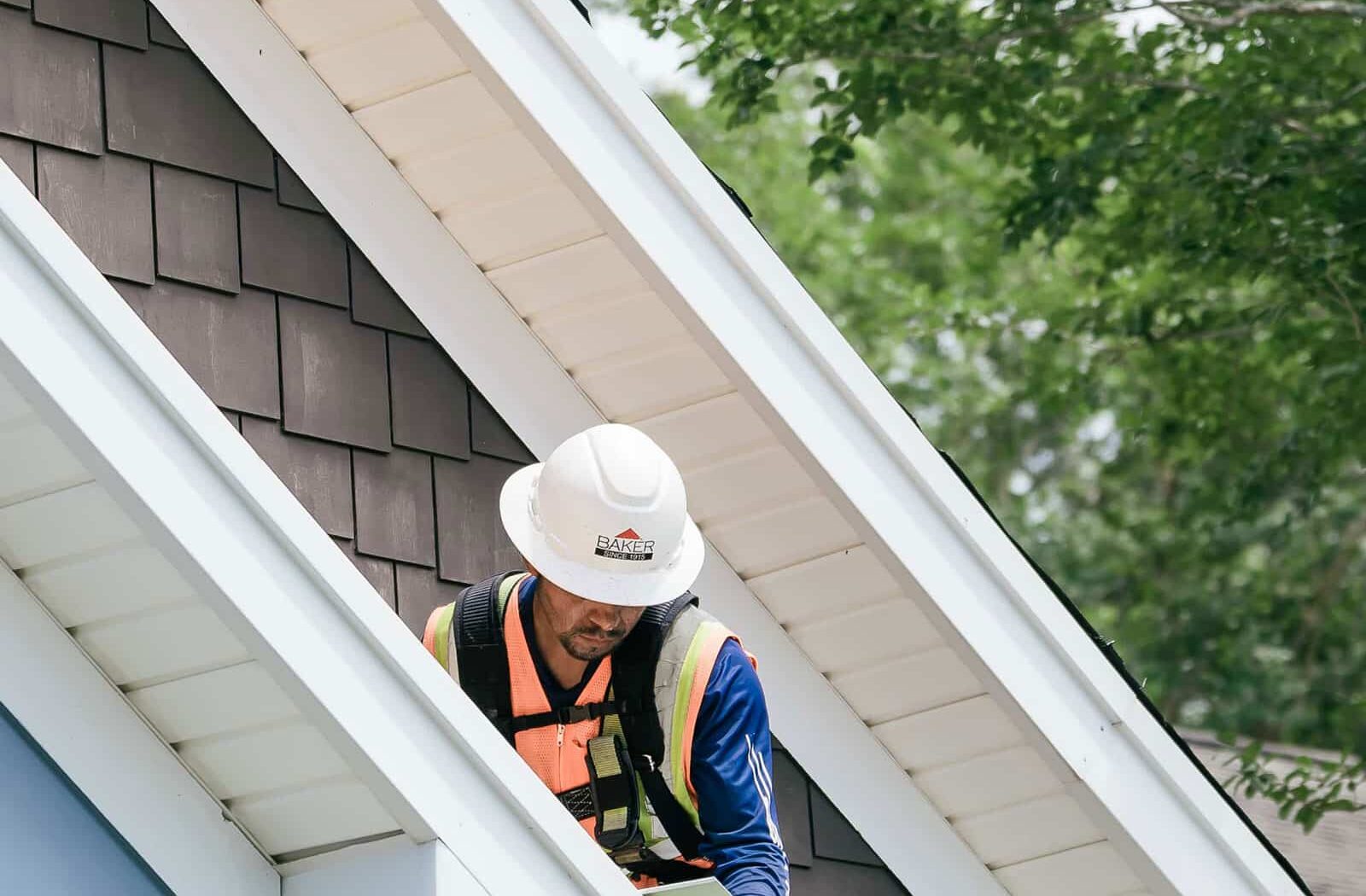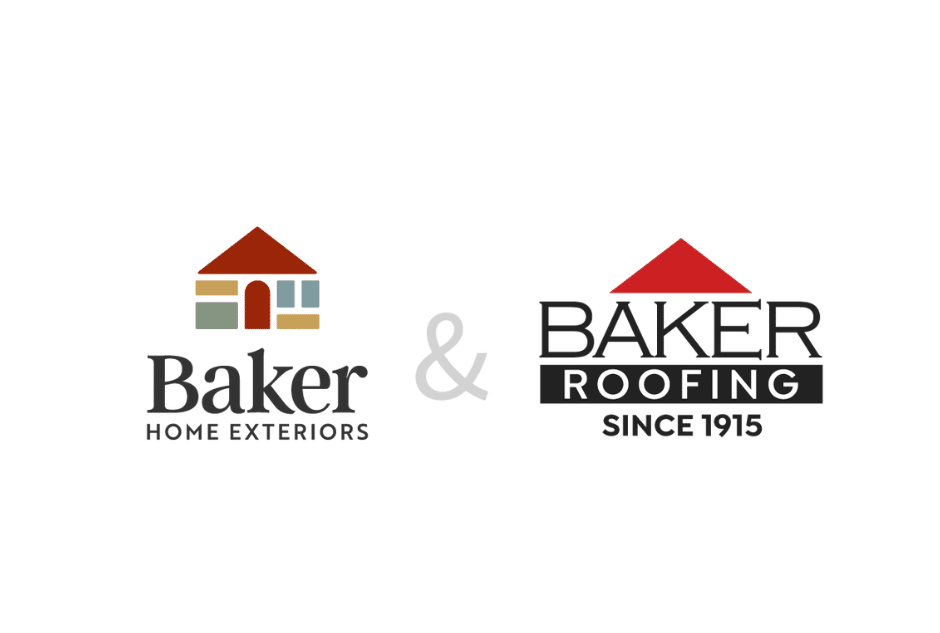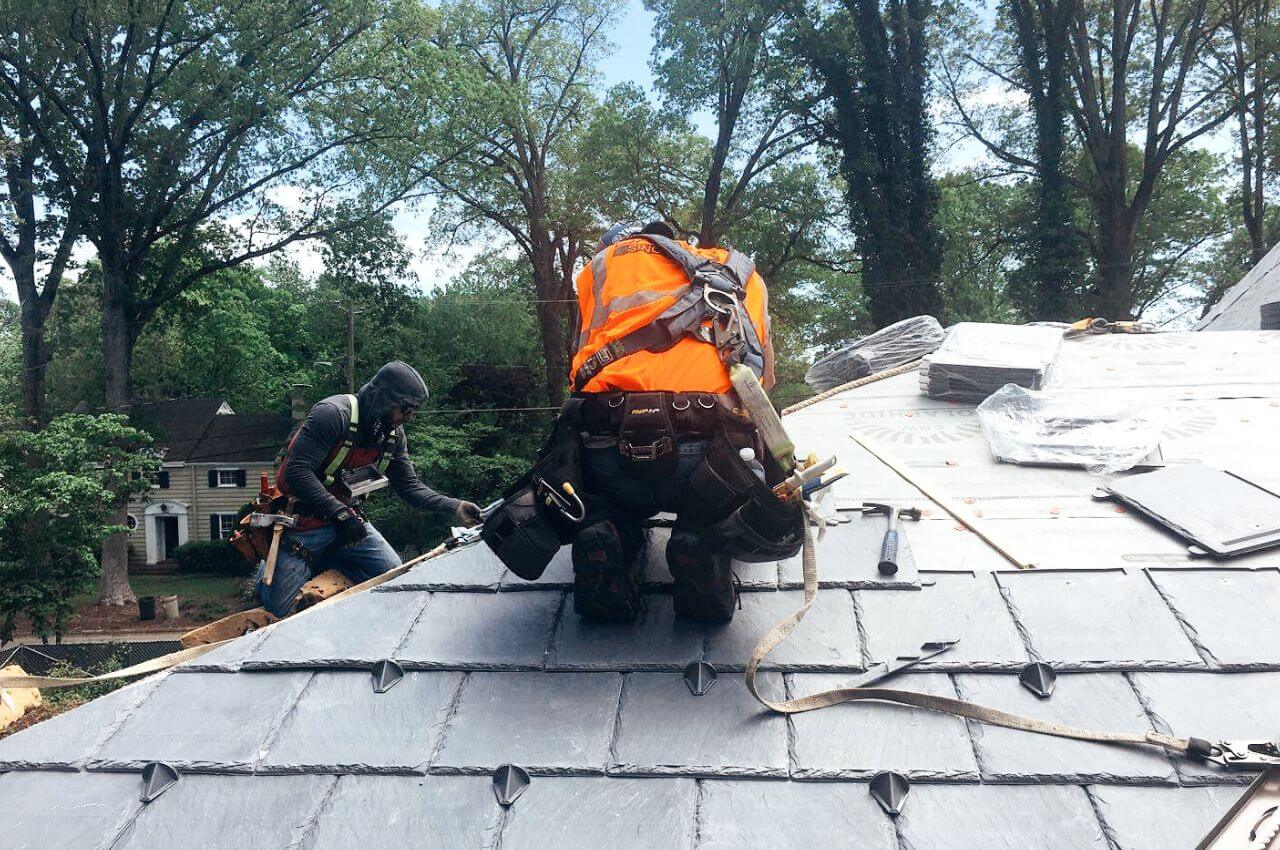8 Things to Check Before Hiring a Local Roofing Contractor After A Storm

Your roof is one of the most important investments in your home, and choosing the right local roofing contractor can mean the difference between lasting protection and costly headaches. Unfortunately, storm season also brings an increase in out-of-state “storm chasers” and high-pressure sales tactics that put homeowners at risk.
To help you hire wisely, we’ve created this guide with eight critical things to look for in a local roofing contractor. You’ll also find a Roofing Contractor Checklist you can use during your search and a way to contact us for a second opinion on any estimate you get.
Quick Answer
Before signing anything, always verify a contractor’s licensing and insurance to protect yourself from liability. Check online reviews and ask for references to confirm a track record of quality work and reliability. Always insist on detailed, written estimates that outline materials, timelines, and payment terms; be cautious of anyone demanding full payment upfront or pressuring you to “sign today.”
Most importantly, choose a local, established roofer with proven roots in your community, transparent communication, and written warranties for both materials and workmanship. These steps ensure you’re working with a trusted professional rather than a storm chaser looking for quick profit.
Explore Baker’s Carolina Storm Center
We built our storm center to help families protect themselves from bad actors during difficult times.
Fast and free estimates.
1. Verify Licensing & Insurance
Always ask for proof of licensing and insurance before signing any contract. In North Carolina, a General Contractor license is required for roofing projects valued at $40,000 or more. In South Carolina, roofers must be licensed or registered with the state’s Labor, Licensing, and Regulation board.
At minimum, request:
- State license number
- General liability insurance certificate
- Workers’ compensation coverage
Why it matters: Without proper licensing and insurance, you could be left financially responsible for accidents or uncompleted work. We are licensed to serve North Carolina out of our Raleigh, Greensboro, and Asheville locations, and we also have a South Carolina license and do work in and around Greenville and Charleston.
2. Look for Local, Established Roots

Storm chasers often set up shop in town right after severe weather, then disappear once the rush is over. Choose a contractor with a permanent local address, a history of working in your community, and a reputation built over years, not days.
Why it matters: If issues arise down the road, you’ll want a contractor who’s still around to answer your call. We live in the areas we work, so we’re going to be here to answer for the quality we deliver.
3. Check Reviews & References
Research online reviews, ask for references from past customers, and don’t hesitate to call those references directly. Look for consistency, as indicated in positive feedback about communication, timeliness, and quality work.
Why it matters: First-hand experience from other homeowners is one of the most reliable ways to gauge a local roofing contractor’s credibility. You can read our Google reviews to learn more about the service we deliver.
4. Insist on Written Estimates
Never rely on a handshake or verbal promise. Request a detailed written estimate that outlines scope of work, materials, timelines, and payment terms. Get at least two or three estimates to compare.
Why it matters: A written estimate protects you from hidden costs and makes sure everyone agrees on what’s included.
5. Review Warranties & Guarantees
Roofing work should come with both a manufacturer’s warranty (on materials) and a workmanship warranty (on labor). Ask for these in writing so you can better understand what’s covered and for how long.
Why it matters: Warranties offer peace of mind that your investment is protected. You also need to understand what your warranty requires of you to keep it active.
6. Understand Payment Terms
Be wary of contractors who demand full payment up front. A reasonable deposit is common, but most of the payment should be tied to progress or completion of work.
Why it matters: Clear, fair payment terms protect your money and keep the contractor accountable.
7. Watch for Red Flags
Certain warning signs should send you looking elsewhere:
- Cash-only deals
- Refusal to provide license/insurance
- High-pressure “sign now” tactics
- Offers to “handle your insurance claim” on your behalf (not permitted in South Carolina)
Why it matters: These are common hallmarks of scams that can cost homeowners thousands. Any time someone knocks on your door and offers to pay your deductible, alarm bells should sound.
8. Ask About Cleanup & Follow-Up

Roof replacements create debris, nails, and shingles that must be carefully cleaned up. Ask how the contractor handles cleanup and whether they perform a final walkthrough to ensure your satisfaction.
Why it matters: A professional job isn’t complete until your property is restored and safe.
Baker Home Exteriors’ Roofing Contractor Checklist
We’ve created a free, one-page checklist you can print and bring to every contractor meeting. It includes:
- Key questions to ask about licensing, insurance, and experience
- A place to compare estimates from multiple companies
- A section to record warranty details and payment terms
- Red flag reminders to help you avoid scams
Download the Roofing Contractor Checklist (PDF)
Did you get a roofing quote that doesn’t feel right?
If you got a quote that feels odd or you completed our checklist and found red flags with your contractor, schedule a consultation with our experts to get a free, fair, no-pressure estimate.
Use These Consumer Protection Resources
For extra peace of mind, you can verify information with these official resources:
- North Carolina Licensing: NC Licensing Board for General Contractors
- South Carolina Licensing: SC Labor, Licensing & Regulation
- FTC Consumer Protection: Federal Trade Commission – Home Repair Scams
- NC Department of Justice – Consumer Protection Division: NC DOJ Consumer Protection
- SC Department of Consumer Affairs: SC Consumer Affairs
Frequently Asked Questions (FAQs)
A roofing contractor is a licensed professional who installs, repairs, and maintains roofs on homes and commercial buildings. They handle everything from shingle replacement and leak repair to full roof replacements, ensuring your property stays weatherproof and up to code.
A roofing contractor assesses your roof’s condition, recommends repairs or replacements, sources quality materials, and manages the entire installation process. They’re responsible for safety, cleanup, and compliance with local building standards and warranty requirements.
Start by verifying that the roofer is licensed, insured, and locally established. Then, read customer reviews, ask for references, and compare written estimates from multiple companies before coming to a decision. Avoid high-pressure sales tactics and contractors who demand full payment upfront. Always choose a roofer with clear warranties and transparent communication.
Be skeptical of contractors who show up uninvited after storms, offer cash-only deals, or push you to “sign today.” Avoid anyone claiming they can handle your insurance claim for you. Instead, work with a licensed, local roofing contractor that’s been in business for years, not weeks.
Written estimates clearly outline labor, materials, costs, and warranties, protecting you from hidden charges that you don’t notice at when hiring a contractor. They also make it easier to compare bids and ensure you understand what’s included before work begins.
Local roofing contractors have established reputations, ongoing customer support, and a vested interest in their community. They’re also familiar with local building codes and regional weather patterns, unlike out-of-state storm chasers who leave once the work rush ends.
Ask for the contractor’s state license number and proof of general liability and workers’ compensation insurance. In North Carolina, licenses can be verified through the NC Licensing Board for General Contractors; in South Carolina, this is done through the SC Labor, Licensing & Regulation board.
Ask for both a manufacturer’s warranty (covering materials) and a workmanship warranty (covering labor). Make sure you understand the length and conditions of each, including maintenance requirements that keep them valid; otherwise, you may risk losing money down the line.
Final Thoughts: Protect Your Home & Your Wallet
We all know how stressful repair and replacement work on your home’s exterior can be. Luckily, hiring a local roofing contractor doesn’t have to be overwhelming. With the right questions and a simple checklist in hand, you can protect your home, your finances, and your peace of mind.
Looking for a Local Roofing Contractor? Baker Has You Covered
At Baker Home Exteriors, we’ve been serving Carolina families for more than a century with honesty, craftsmanship, and care. Whether you need storm damage repairs, a second opinion, or a full roof replacement, we’re here to be the partner you can trust. If you’re ready to move forward toward your dream home, request a free estimate on your roofing project, or if you’re still thinking, check out our Google reviews with the button below.


